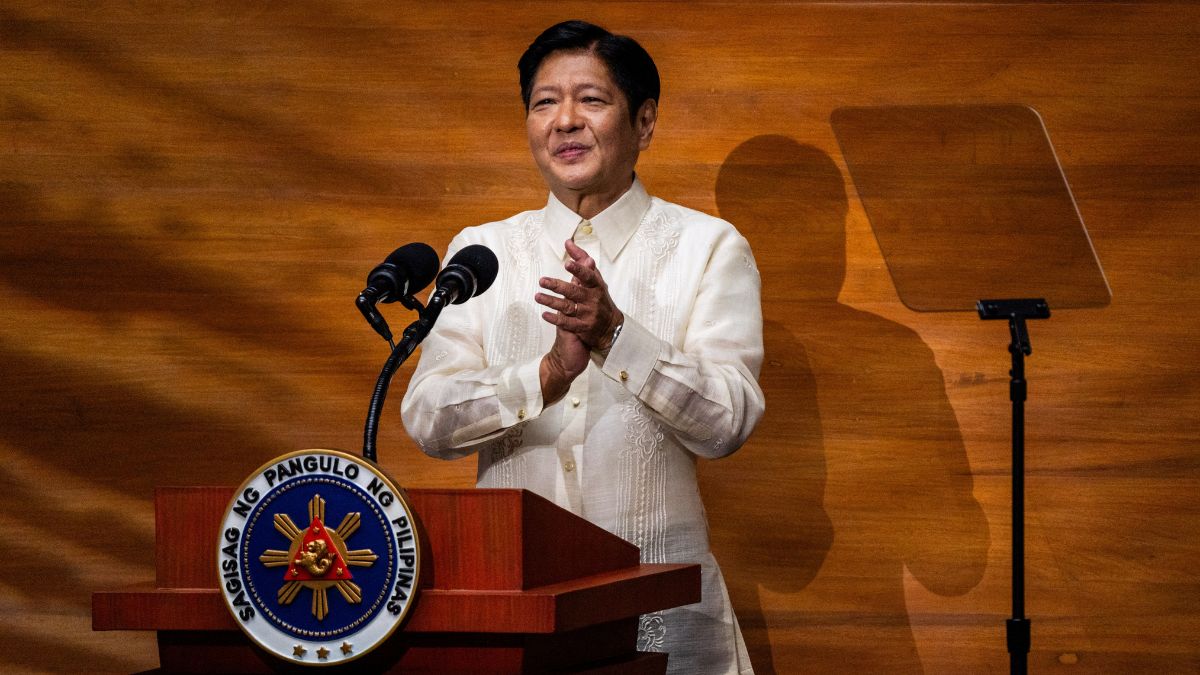Philippine President Ferdinand R Marcos Jr embarked on his maiden visit to India on Monday upon the invitation of Prime Minister Narendra Modi. His five-day visit is not only among his longest state visits abroad but also a clear reflection of the expanding bilateral partnership between Manila and New Delhi. Along with his meeting with Modi, Marcos Jr and his delegation are expected to engage in comprehensive talks with key members of the Indian foreign policy and defence establishment to deepen existing areas of cooperation and explore more ways to maximise the utility of the emerging bilateral partnership.
During his state visit, President Marcos will meet with President Droupadi Murmu, and both the Foreign Minister and the Health Minister will call on him. He will visit India’s IT city, Bengaluru, where he will explore opportunities of collaboration in the technology domain, especially as India’s Digital Public Infrastructure (DPI) has emerged as a major plank of cooperation in the context of the Global South.
Marcos Jr has emphasised that the Philippines’ defence and foreign policy should be anchored on the recently implemented Comprehensive Archipelagic Defence Concept (CADC), which aims to reorient the defence capabilities of the Armed Forces of the Philippines (AFP) towards the security of the Philippines’ exclusive economic zone (EEZ) in order to uphold the ‘inalienable right’ of every Filipino to reap the benefits from the Southeast Asian country’s resource-rich maritime zones.
The CADC marks an important and full-hearted attempt by the Marcos Jr administration to prioritise territorial defence of the archipelago after decades of attention given to internal counter-insurgency operations. Additionally, the Philippines also aims to build on its self-reliance in defence based on the Self-Reliance Defence Posture (SDRP) initiative. It is against this backdrop that the Philippines has been placing great importance on its security partnership with India.
Impact Shorts
More ShortsUnder the Marcos Jr administration, the Philippines has been more actively pushing collaboration with India, especially in the field of defence and maritime security. While in the past, Philippines-India ties were largely limited to issues of low politics, today, Manila has today incorporated India into its security calculations as a credible and trusted defence partner at a time when China has been increasing its provocations and unilateralism in the West Philippine Sea, the part of the greater South China Sea encompassing the Philippines’ lawful EEZ.
Within the past three years, a series of notable developments have occurred in the bilateral partnership. These include the signing of a first-ever memorandum of understanding on cooperation between the Indian and Philippine Coast Guards in 2023, the inauguration of the first Track 1 meeting on maritime security cooperation in 2024, and an increase in Indian Navy ship visits and joint maritime activities.
In fact, the Philippine and Indian navies are holding their bilateral maritime activity this week in waters close to Scarborough Shoal in the West Philippine Sea. To this, the Armed Forces of the Philippines Chief of Staff General Romeo Brawner Jr highlighted that more than its symbolism, the navy-to-navy engagements between both democracies send “a powerful signal of solidarity, strength in partnership, and the energy of cooperation between two vibrant democracies in the Indo-Pacific”.
Manila has been one of the first to procure and integrate Indian Brahmos supersonic missiles and more equipment, which have shown their edge during the recent India-Pakistan conflict, and may also be discussed along with other strategic collaborative projects as the two countries cope with the AI-driven Industrial Revolution 4.0. A vision document will lay down the contours and trajectory of our futuristic and mutually beneficial cooperation with relevant institutions, list mechanisms, and agreements. Direct air connectivity between Delhi and Manila is also expected soon, which could give a fillip to tourism and trade that is way below potential at this stage.
As the Philippines and India are on the verge of elevating ties to a “strategic partnership”, the timing of Marcos Jr’s visit could not have been better.
Anil Trigunayat is the former Indian Ambassador to Jordan, Libya, and Malta and is currently a Distinguished Fellow with the Vivekananda International Foundation. Don McLain Gill is a Philippines-based geopolitical analyst, author, and lecturer at the Department of International Studies, De La Salle University. The views expressed in the above piece are personal and solely those of the authors. They do not necessarily reflect Firstpost’s views.


)

)
)
)
)
)
)
)
)



